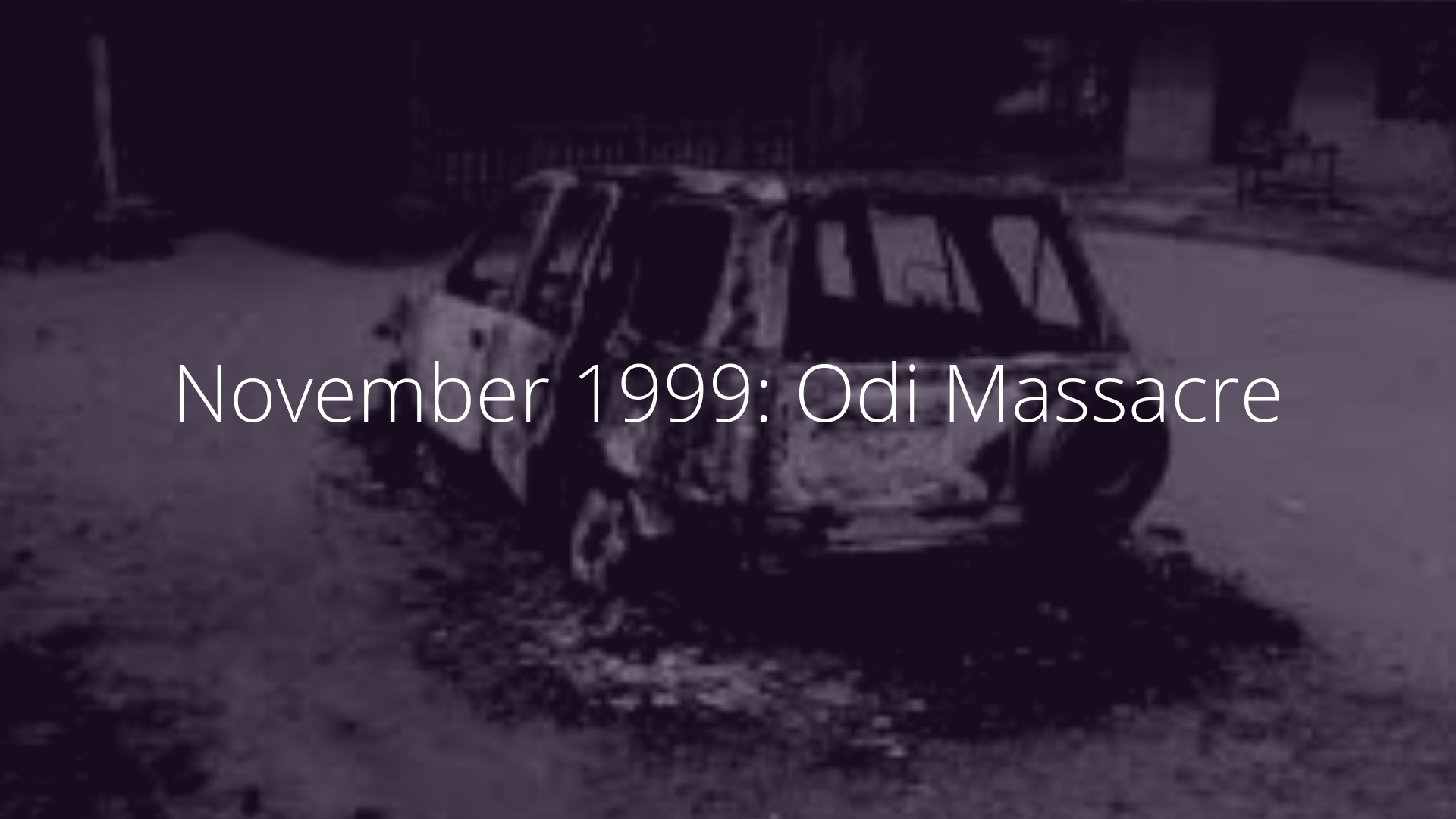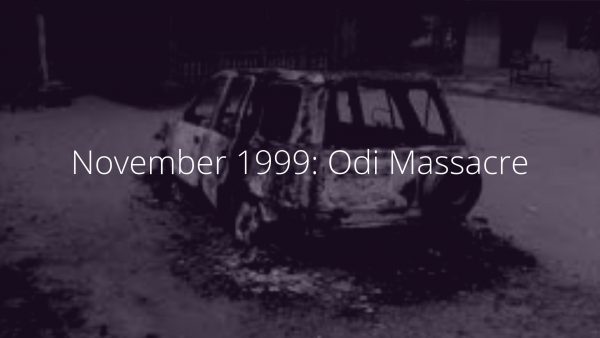After peaceful entreaties fail, desperate measures by the authorities such as a wipe-out in the scale of the Odi massacre gets employed.
Nothing is as brazen as a president ordering the wipeout of a town in this era, especially when they are citizens of a country he governs. The chain of command sanctioning the massacre trailed from President Olusegun Obasanjo to then Chief of Army Staff, Gen. Victor Malu and to Lt. Col. Agbabiaka who led the team that sacked the town on November 20, 1999.
Some unscrupulous elements from the rural town of Odi ìn Bayelsa state were said to have murdered 9 policemen in cold blood as a result of hostilities which goes way back in time. Naturally, ordinary civilians could not have been able to carry out such grade of tactical homicides but it is believed that hardened criminals who also mask as militants employed the guise of disagreements about matters as varied as oil installations, kidnapping, car-jacking, and armed robberies to foster trouble of such magnitude as murdering 9 policemen on November 4, 1999. The policemen murdered were said to have been part of a trail of this militant gang led by a young man named Ken. This same man, the son of a retired policeman, was said to have begun recruiting this notorious gang when he heard of a clash between OPC members and some Ijaw youths in Ajegunle, Lagos.
This event was largely the catalyst that got the Police Force, the Armed Forces, as well as the government irked that they thought this band of criminals had so much infiltrated the town that they were now exploiting and depending on the unarmed civilians as human shield. The military who later successfully repelled the attacks on them as well as outsmarting the ambush set for them opted for a desperate measure of leveling the whole town, including its civilian population. At the end of the military exercise, only an Anglican church, a bank, and the health center were left standing.
According to Dr Doyin Okupe, Obasanjo’s Special Adviser on Media and Publicity who gave a more graphic account of what went down at Odi to the then Senate President, Dr. Chuba Okadigbo, he said, “On arrival at Odi township, the soldiers were put under heavy bombardment from highly-sophisticated artillery (manned) by trained fighters disguising as youths. This gang of dissidents made it impossible for troops to enter the township for over three hours and because of approaching night and to avoid unnecessary civilian casualties, the government troops withdrew and laid low even though they had the firepower and manpower to override the militant terrorists. The troops resorted to this in order not to depart from their brief and to ensure that there is no wastage of human life.”
In fact, the soldiers kept watch in Odi for a few days more after the massacre until the arrival of Dr. Chuba Okadigbo and his team who came on a sympathetic sight-seeing visit. Not until the appearance of Okadigbo would some of the lucky survivors of the Odi massacre come out of their hiding in the bushes where they had only managed to survive that long without food.
It would be years later, after a string of lawsuits and court judgments, that the Federal Government eventually paid a sum of 15 billion naira in 2014 as compensation to residents of Odi township, in an out of court settlement by the government of President Goodluck Jonathan who happens to be Ijaw himself. President Obasanjo took the flak for a major part of the unfortunate incident as most human right bodies, especially the Human Rights Watch viewed the tragedy as genocide. No fewer than 2500 civilians were said to have lost their lives in the massacre.
Not only are we then reminded of this costly gaffe in Odi where the government overreacted, we are also summoned as witnesses unto posterity per the implications of extra-judicial killings the government commits all in the name of maintaining peace and order desperately.


